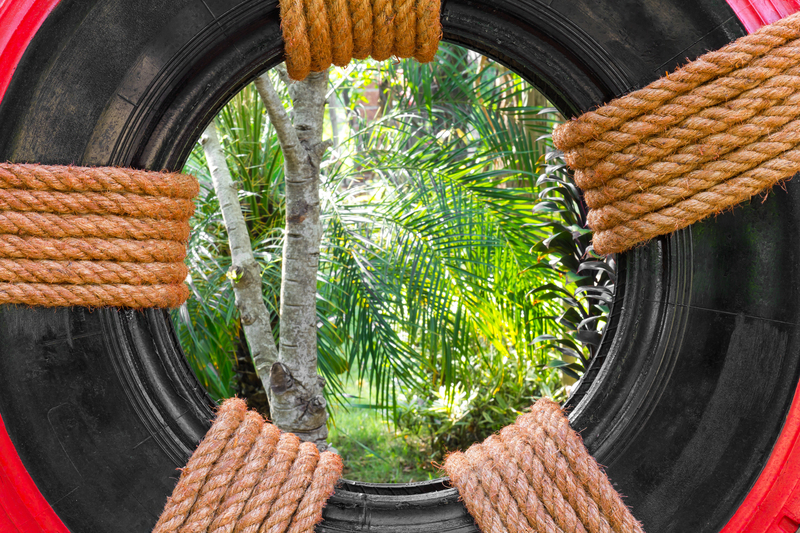Clutter Chronicles: Overcoming Hoarding Challenges
In today's fast-paced world, hoarding disorder has emerged as a significant challenge for many individuals and their families. The piles of clutter, emotional distress, and physical hazards associated with hoarding can have long-lasting consequences. In this comprehensive exploration, we delve into the world of hoarding, unraveling its complexities, causes, effects, and--most importantly--strategies for conquering hoarding challenges. If you or someone you care about is grappling with clutter, this guide is your first step toward understanding and overcoming the hurdles of hoarding.

Understanding Hoarding: More Than Just Clutter
Hoarding is often misunderstood as mere messiness or laziness. But in reality, it is a recognized mental health disorder that impedes everyday functioning. The core features of hoarding include:
- Persistent difficulty discarding or parting with possessions, regardless of their actual value.
- Strong emotional attachments to items, even those commonly perceived as useless or insignificant.
- Severe clutter that disrupts living spaces and daily activities.
- Distress or impairment in social, occupational, or other areas of life due to possessions.
According to the American Psychiatric Association, hoarding disorder affects approximately 2-6% of the population. The condition often emerges in adolescence and worsens over time, making early intervention critical. Recognizing hoarding behaviors is the first step in overcoming them.
Hoarding vs. Collecting: The Key Differences
It is vital to distinguish between collecting and hoarding clutter. While collectors meticulously curate and organize themed items, hoarders accumulate objects with little organization and experience distress at the thought of letting anything go.
- Collectors find joy in their curated collections and maintain order.
- Hoarders are often embarrassed by their piles of possessions and experience significant distress or anxiety over discarding items.
Root Causes: Why Do People Hoard?
Understanding the root causes--psychological, biological, and environmental--can help in crafting effective intervention strategies for overcoming hoarding tendencies.
- Genetics: Studies indicate a genetic predisposition. People with first-degree relatives who hoard are more likely to develop similar behaviors.
- Trauma or Loss: Many hoarders report the onset of their disorder following traumatic events, such as the loss of a loved one, divorce, eviction, or a natural disaster.
- Mental Health Disorders: Hoarding often co-occurs with anxiety disorders, depression, OCD, ADHD, and other psychiatric conditions.
- Information Processing Deficits: Difficulties in decision-making, attention, and organization frequently contribute to hoarding clutter.
- Emotional Attachments: Everyday items are imbued with memories, hopes, or fears, making it painful to discard them.
The Impact of Hoarding: More Than Meets the Eye
The effects of hoarding extend well beyond visible clutter. Untreated hoarding can affect:
- Physical Health: Piles of belongings can harbor mold, dust, vermin, and create fire hazards.
- Mental Health: Isolation, depression, and anxiety often accompany severe hoarding.
- Relationships: Hoarding commonly leads to social withdrawal, family conflict, and marital strife.
- Legal and Financial Problems: Homes can become uninhabitable, resulting in eviction, fines, and legal action.
*Acknowledging these impacts is essential in motivating change and overcoming hoarding challenges.*
Signs and Symptoms of Hoarding Behavior
- Inability to throw away possessions, even items of little or no value
- Severe disorganization causing rooms or spaces to be unusable
- Indecision about what to keep or discard
- Distress or discomfort at the thought of letting things go
- Procrastination and avoidance of cleaning or decluttering tasks
- Suspicion or distrust when others try to touch or move possessions
- Difficulty organizing possessions and often losing items
Strategies for Overcoming Hoarding Challenges
Battling and recovering from hoarding disorder is neither quick nor easy, but it is absolutely possible. Below are effective strategies and steps anyone struggling with excessive clutter can take to embark on a path to recovery.
1. Recognize and Accept the Problem
- Acknowledge the issue: Recognize hoarding as a unique condition that requires attention and care.
- Confront denial with honesty--accepting there is a problem is a courageous and necessary first step to overcoming hoarding behaviors.
2. Seek Professional Help
Hoarding rarely improves on its own. Professional intervention is often required. Consider:
- Cognitive Behavioral Therapy (CBT): Specifically tailored for hoarding, CBT helps to address distorted beliefs and teaches new ways of making decisions about possessions.
- Medication: In some cases, antidepressants or anti-anxiety medications can help manage underlying conditions.
- Support Groups: Peer support with people facing similar struggles can provide encouragement and accountability.
3. Create a Decluttering Plan
- Start small: Focus on one small area--the kitchen counter, a nightstand, or a corner of the living room.
- Set realistic goals and incrementally increase the scope of decluttering activities.
- Establish clear rules: For example, 'If I haven't used it in one year, I will let it go.'
4. Enlist Trusted Support
Share your journey with friends or family, or invite a trusted person to help with the decluttering process. Sometimes, an outside perspective can provide clarity for decision-making and emotional support in overcoming hoarding challenges.
5. Practice Mindfulness and Emotional Awareness
- Notice the feelings that arise when sorting through possessions--guilt, fear, sadness, or anxiety.
- Practice self-compassion: Remind yourself that healing is a journey and setbacks are part of growth.
- Meditation and stress-relief techniques can support emotional regulation during the decluttering process.
6. Organize What You Keep
- Find storage solutions like shelves, bins, or cabinets to maintain order.
- Label containers and structures for easy access and better organization.
- Regularly review kept items to avoid accumulation of new clutter.
7. Set Up Maintenance Routines
- Establish daily or weekly cleaning habits to keep spaces clutter-free.
- Schedule routine purges--set reminders every three to six months to revisit and declutter your possessions.
- Reward yourself: Celebrate each milestone, no matter how small, to build positive motivation.
Supporting a Loved One with Hoarding Disorder
If you are close to someone dealing with hoarding, your support is invaluable. However, helping someone overcome hoarding disorder is delicate. Here are some supportive strategies:
- Educate yourself about hoarding to approach the situation with empathy and understanding.
- Initiate non-judgmental conversations, focusing on concern for their safety and wellbeing rather than criticizing their clutter.
- Offer to assist or locate resources (therapists, cleaning services, or support groups).
- Respect their autonomy and avoid making decisions for them.
- Celebrate progress and patience--recovery is a gradual process with ups and downs.
Specialized Help: When and How to Seek It
Sometimes, the situation outpaces what can be handled by family or friends alone. In cases of severe hoarding, where there is an immediate health or safety risk, professional hoarding cleanout services may be necessary. Professionals can:
- Safely remove biohazards or dangerous debris
- Restore homes to healthy, livable conditions
- Work in collaboration with mental health providers to minimize trauma
For legal matters, consider seeking help from social workers, adult protective services, or housing authorities who specialize in hoarding situations.
Sustaining Progress: Preventing Relapse
Successfully overcoming hoarding challenges is a tremendous achievement, but it requires commitment to maintain the progress. Here's how you can sustain your clutter-free life:
- Recognize warning signs of relapse--rising piles, returning anxiety about discarding objects, or resuming shopping sprees.
- Practice ongoing self-care and seek ongoing therapy or counseling if necessary.
- Stay connected with support networks--friends, family, or support groups.
- Document your victories by taking before-and-after photos or keeping a journal.

Frequently Asked Questions about Hoarding
Is hoarding the result of laziness?
No. Hoarding is a complex mental health disorder that requires compassion, understanding, and professional intervention. It is not about laziness or willpower.
Can children or teenagers be hoarders?
Yes. Hoarding behaviors can begin in childhood or adolescence and tend to worsen without intervention. Early detection is key to effective support.
Are there medications specifically for hoarding?
While there is no medication approved solely for hoarding disorder, certain types--like antidepressants--may help manage associated anxiety or depression.
How can I approach a loved one who is hoarding?
Always approach the conversation with empathy and concern for their wellbeing, avoiding accusations or ultimatums. Offer information about available resources and encourage professional help.
What is the most effective treatment for overcoming hoarding disorder?
Research supports CBT (Cognitive Behavioral Therapy) as the best long-term treatment. A combined approach of therapy, practical decluttering, and emotional support yields the best outcomes.
Conclusion: Hope for a Clutter-Free Future
Overcoming hoarding challenges is an act of courage and transformation. While the road can be difficult, it leads to renewed health, stronger relationships, improved safety, and restored self-confidence. Remember, change is possible. Whether you are wrestling with your own clutter or supporting someone else, every step forward matters. Embrace the process with patience, thanksgiving, and hope--the chronicles of overcoming hoarding are stories of strength, resilience, and the promise of a brighter, more open tomorrow.
If you or a loved one is struggling with hoarding, reach out for help today. There are compassionate professionals, support networks, and countless others who have faced similar challenges and found their way out of clutter. You are not alone--your journey to overcoming hoarding and reclaiming your living space starts now.
```